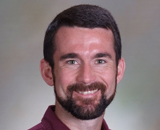
We’d hoped evidence based medicine (EBM) would improve patient oriented outcomes and clinical processes, but some fear the “EBM” movement is broken. However, it may not be just “EBM” as a movement that is broken—I am starting to wonder more and more about clinicians’ willingness or ability to apply evidence in practice, when it runs counter to usual practice or our expectations of what it means to be sick.
- Despite the most recent American College of Physicians guidelines recommending “against the use of mechanical prophylaxis with graduated compression stockings for prevention of venous thromboembolism,” performance improvement pressure at local hospitals has led to nearly universal application of mechanical thromboembolism prophylaxis to all medical inpatients.
- There is fairly clear evidence not only that “Ambulation, combined with compression of the affected extremity, appears to be safe for medically stable patients with deep venous thrombosis,” but also that “Leg compression and ambulation, compared with bed rest without compression, can effectively decrease swelling and pain.” This evidence has been building for over 10 years, yet I recently encountered a patient with a new thrombus, who’d been advised to nearly completely limit activity for at least two weeks.
- Oral rehydration is an effective and safe (and less invasive) method of treating mild to moderate dehydration, yet treatment of most dehydrated kids in “developed” countries still seems to jump straight to the intravenous route.
- Despite the fact that metformin is recommended as the first-line oral treatment for type 2 diabetes, disproportionate concerns over side effects and contraindications continue to lead to underutilization. The process of change is always hard, and implementing change in the face of inertia or tradition (or even local convention) can be harder still. Doctors, however, are not called to simply follow the crowd—doctors are called to be leaders and (going back to the Latin roots of the word), teachers.
We need to work not only to reclaim the original visions of the evidence based medicine movement, we also need to encourage critical appraisal and implementation of the current evidence.
I’ve heard it said that you don’t want to be the first person to adopt something new, but neither do you want to be the last. However, when there is clear evidence in the literature for a better way forward, it behoves us as physicians to at least get out in the front and push for change.
Competing interests: “I declare that that I have read and understood the BMJ Group policy on declaration of interests and I have no relevant interests to declare beyond a passion for clear and critical thinking.”
William E Cayley Jr practises at the Augusta Family Medicine Clinic, teaches at the Eau Claire Family Medicine Residency, and is a professor at the University of Wisconsin, Department of Family Medicine.
